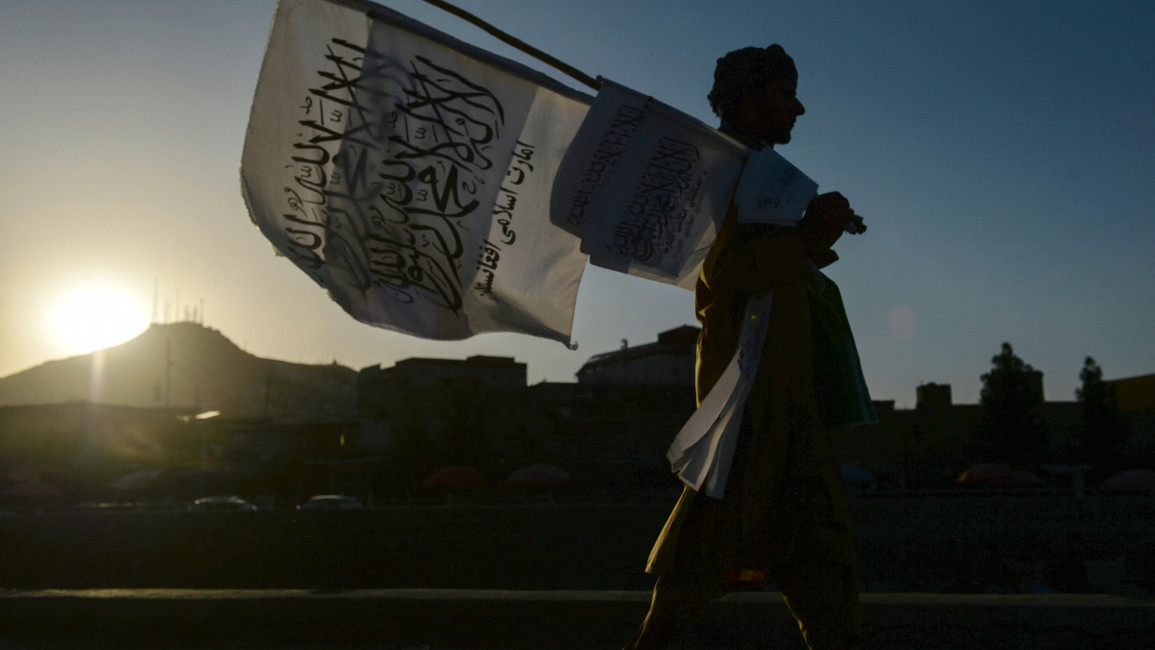Officials: Pakistani militant leader killed in Afghanistan
A late night roadside bombing in eastern Afghanistan struck a vehicle carrying members of the Pakistani Taliban group, killing a senior leader and three other militants, several Pakistani officials and militant figures said Monday.
No one immediately claimed responsibility for the Sunday night killing of Abdul Wali, also widely known as Omar Khalid Khurasani, in Afghanistan's Paktika province. His death is a heavy blow to the Pakistani Taliban, the Tehrik-e-Taliban Pakistan group or the TTP.
The TTP blamed Pakistani intelligence agents for the killing, without offering evidence or elaborating.
Three senior commanders of the Tehrik-e-Taliban Pakistan (TTP) – also known as the Pakistani Taliban -- have been killed in a blast in southeastern Afghanistan, dealing a heavy blow to the militant group، It is not yet clear whether it was a drone attack or a mine explosion pic.twitter.com/xzdgYA4h7v
— Mamoon Durrani 🇦🇫 مامون دُرانی (@MamoonDurrani) August 7, 2022
The three other slain militants included Khurasani's driver and two of his close aides. No one else was in the car at the time of the attack, according to Pakistani officials and the TTP members who spoke to The Associated Press. They spoke on condition of anonymity because the attack has not yet been publicly announced.
A statement from the TTP was expected later Monday.
The Pakistani Taliban are a separate group but allied with the Afghan Taliban, who seized power in Afghanistan a year ago as the US and NATO troops were in the final stages of their pullout.
The TTP has waged an insurgency in Pakistan over the past 14 years, fighting for stricter enforcement of Islamic laws in the country, the release of their members who are in government custody and a reduction of Pakistani military presence in the country’s former tribal regions.
Khurasani, a senior TTP leader, split in 2014 to form his own militant group, Jamaat-ul-Ahrar, which later joined the Pakistani Taliban. Jamaat-ul-Ahrar was designated as a terrorist group by the United States in 2016. Rewards for Justice, the US State Department's counter-terrorism rewards program, offered up to $3 million for information on Khurasani.
Jamaat-ul-Ahrar is accused of launching multiple attacks against Pakistani forces and religious minorities. The group also claimed responsibility for killing two Pakistani employees of the US Consulate in the northwestern city of Peshawar in March 2016.
That same year, it claimed responsibility for a suicide attack at a park in Pakistan's eastern city of Lahore that killed more than 70 people.
The TTP — an umbrella group of several militant factions — has also been behind numerous attacks on Pakistani troops and civilians over the last 15 years.
Khurasani was part of the TTP's negotiators who were holding talks with Pakistani officials since May. Three other militants killed in the bombing were identified by security officials and TTP members as Hassan Ali, Mufti Hassan and Hafiz Daulat. It was not immediately known where were they buried.
It was not immediately clear if and how Khurasani's killing would affect about three monthslong cease-fire between TTP and Pakistan's government. The truce was originally announced in May and was later extended for an indefinite period after talks between the Pakistani government and the TTP hosted by the Afghan Taliban in Kabul.
The cease-fire has mostly been holding, raising prospects for progress in the talks between the two sides.
TTP has long fought for stricter enforcement of Islamic laws in Pakistan, release of their members from government custody, and a reduction of military presence in Pakistan's former northwestern tribal regions.
Islamabad has demanded that the new Taliban rulers next door prevent militant groups from using Afghan territory for attacks inside Pakistan. Before the Taliban takeover in Afghanistan, Islamabad and Kabul often traded blame and accused each other of sheltering militants.
Pakistan now says it has finished the construction of more than 93% of a fence along the border with Afghanistan to prevent cross-border militant attacks.



